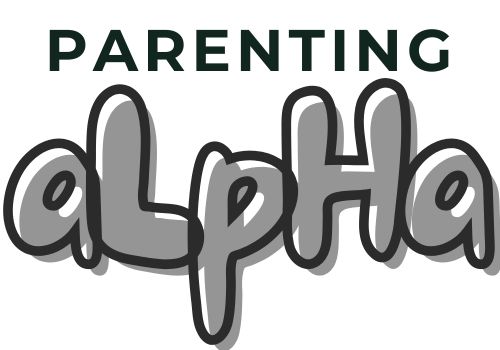The timeless art of music remains a vital component in your child’s education even deep in the 21st century. This education offers more than just the ability to play an instrument or sing.
It is not just an artistic endeavor, but a powerful catalyst for enhancing cognitive abilities, emotional health, social skills, and physical coordination.
However, music as a whole has undergone a fascinating transformation since the 20th century. While the core benefits of musical learning have remained ‘almost’ constant, the approaches and philosophies guiding instructions have shifted significantly.
To illustrate,
- The rise of digital tools and recording equipment has led to a more diverse and experimental musical landscape, albeit others pushing for more homogenized sounds!
- New genres have emerged (like electronic dance music) and older genres have been reinterpreted and blended together in new ways.
- Streaming services and online platforms have made it possible for people to access a wider variety of music than ever before.
- The music industry itself has been transformed by digital technology. The rise of streaming services has led to a decline in traditional album sales, but it has also made it easier for independent artists to reach a global audience.
- The pressure to go viral on social media has also led some artists to prioritize catchy hooks, explicit lyrics, and short attention spans creations over complex songwriting or musical exploration.
This article explores the good impact of music education in general on children today, stretching from cognitive and emotional development to social and physical growth.
The Good About Music Education:

There are many benefits to music education for children, ranging from brain development to social skills. Here’s a quick rundown:
1. Cognitive Development for Better Brain Function
One of the most significant benefits of music education is its positive impact on cognitive development. Studies have shown that engaging with music from an early age can enhance brain function in several ways:
1. Improved Memory and Attention: Learning to read music and play an instrument requires children to develop their memory and attention skills. These skills are transferable to other academic areas, leading to better performance in subjects such as mathematics and reading.
2. Enhanced Language Skills: Music education involves recognizing patterns, rhymes, and rhythms, which can improve language processing abilities. This helps children with reading comprehension and verbal communication.
3. Spatial-Temporal Skills: Playing an instrument helps in developing spatial-temporal skills, which are crucial for solving complex mathematical problems. The ability to visualize and manipulate objects in space is enhanced through musical training.
2. Emotional Benefits for Better Self-Esteem and Stress Reliever
Music education plays a crucial role in the emotional development of children. It provides a creative outlet for expression and helps in building self-esteem and reducing stress.
1. Emotional Expression: Music provides children with a means to express their emotions in a healthy and constructive manner. This can be particularly beneficial for children who may struggle with verbal communication.
2. Stress Relief: Engaging with music, whether through playing an instrument or singing, can be a powerful stress reliever. It helps in reducing anxiety and provides a sense of accomplishment and relaxation.
3. Self-Esteem and Confidence: Performing music in front of an audience, whether in a classroom or on stage, helps build confidence. Overcoming the challenges associated with learning music also boosts self-esteem.
3. Social Development for Teamwork and Communication
Music education significantly contributes to the social development of children. It fosters teamwork, communication, and a sense of community.
1. Teamwork: Many musical activities, such as playing in a band or singing in a choir, require children to work together. This teaches them the importance of cooperation and working towards a common goal.
2. Communication Skills: Learning music involves listening and responding to others, whether it’s following a conductor or playing in sync with a group. These activities enhance communication skills and teach children how to effectively interact with their peers.
3. Cultural Awareness: Music education often involves exposure to various musical styles and traditions from around the world. This helps children appreciate cultural diversity and fosters a sense of global awareness and understanding.
4. Physical Development for Fine and Gross Motor Skills
Engaging with music also contributes to the physical development of children, particularly in the areas of fine and gross motor skills.
1. Fine Motor Skills: Playing instruments like the piano, violin, or guitar requires precise finger movements. This enhances fine motor skills and hand-eye coordination.
2. Gross Motor Skills: Activities like marching in a band or dancing to music help in developing gross motor skills, balance, and coordination.
3. Overall Physical Health: Active engagement in music-related activities can contribute to overall physical health by encouraging movement and physical activity.
5. Music Education for Academic Excellence
There is a strong correlation between music education and academic achievement. Children who engage in music education often perform better academically across various subjects.
1. Better Academic Performance: Research indicates that students involved in music education score higher on standardized tests and achieve better grades overall.
2. Discipline and Time Management: Learning an instrument requires regular practice and discipline. These skills are essential for academic success and can be applied to other areas of study.
3. Creativity and Problem-Solving: Music education nurtures creativity and enhances problem-solving abilities. These skills are valuable in both academic and real-world contexts.
The Flipside:

Still, not all is rosy in music education to some extent. For example,
- Depending on the teaching style, this education might prioritize technical skills like sight-reading or proper fingering techniques over encouraging creativity and improvisation. This can stifle a child’s natural musicality and enjoyment.
- Homogenized sounds, where everything sounds similar, have downsides for music lovers such as blandness, flatness, ear-strain and limited innovation.
- Group music classes might not cater to every child’s learning style or pace. Some children might need more individualized attention to thrive.
- Like any competitive activity, music programs can become stressful for some children, especially if there’s a strong emphasis on performing or achieving high marks. This can take the joy out of music and lead to performance anxiety.
It is important to remember that these are potential drawbacks, and a well-designed music education program can avoid most of them. Combating performance anxiety and stifled creativity is possible through prioritizing joy and exploration alongside technical skills.
In addition, providing low-pressure performance opportunities, ensures accessibility for all students, and utilizing diverse teaching methods can further create a well-rounded and inclusive music program. This can spark a lifelong love of music in every child.





Leave a Reply